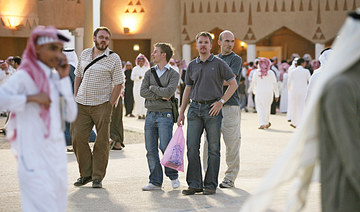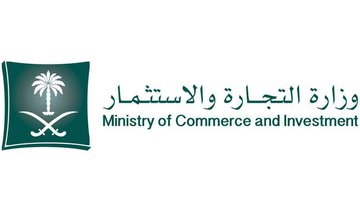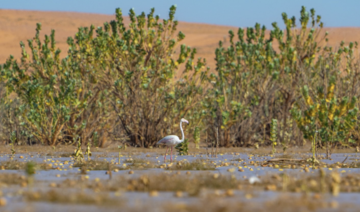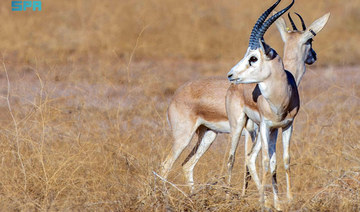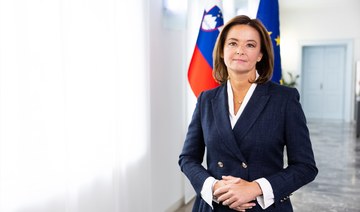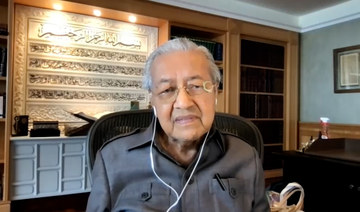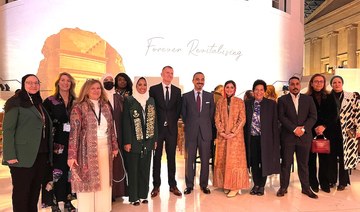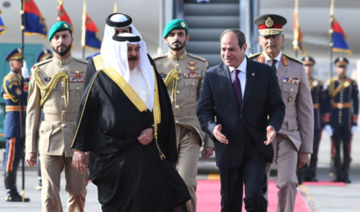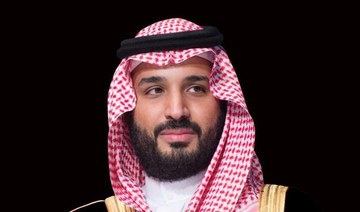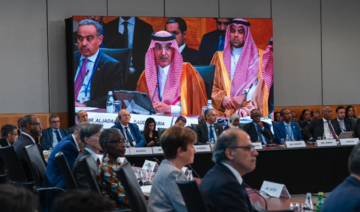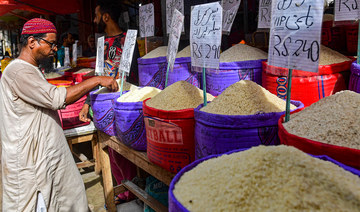JEDDAH: The Um Al-Qura newspaper, the official gazette of the Saudi government, has published new information concerning the laws and regulations of the Privileged Iqama, widely known as the Saudi “Green Card.” It also carried the conditions under which the Iqama can be canceled.
Following the announcement of the Saudi Cabinet’s approval of the Privileged Iqama residency permit, as previously reported by Arab News, the new information offers a further look at the Privileged Resident Permit (iqama) scheme.
The iqama was first proposed in 2016 by Crown Prince Mohammed bin Salman and was approved by the Cabinet last week. It will for the first time allow foreign nationals to work and live in Saudi Arabia without a sponsor.
The scheme will enable expatriates to permanently reside, own property and invest in the Kingdom. An authorized draft of the new Privileged Iqama system offers a number of benefits to highly skilled expatriates and owners of capital funds that will not require a Saudi sponsor.
A special committee has been given 90 days to determine regulations governing the mechanisms of the scheme, such as fees for applicants, which have not been yet determined by the authorities.
Fahad bin Juma, vice chairman of the Shoura Council Financial Committee said that eligibility for the Saudi Green Card will be determined by a number of bodies headed by the Ministry of Commerce and Investment, as reported by Al-Watan newspaper.
He also added that in order to be eligible, applicants must possess scientific or professional skills that are not abundantly available in the Kingdom, or they should be company owners who can invest in the country.
The holder of the Privileged Iqama will be deemed resident for the purpose of applying other statutory provisions, especially tax provisions, regardless of how much time he spends outside the Kingdom in the course of the year.
The applicant must be over 21 years of age, must have a valid passport, must not have a criminal record, and must provide a health report dated within 6 months of the application presenting proof that the applicant is free of infectious diseases. In the case of applications from within the Kingdom, the applicant must obtain a legal resident permit before applying.
The Privilege Iqama rights include possession of private means of transport and any other movable properties that an expat is allowed to acquire as per the Saudi law, employment in private sector establishments and transfer between them (this includes the beneficiary’s family members) except for occupations and jobs from which non-Saudi nationals are banned. The rights also include freedom to leave the Kingdom and return to it independently, use of the queues designated for Saudi nationals when entering and exiting the Kingdom through its ports, and doing business under the foreign investment system.
Under the system, two categories are provided to applicants, an extended iqama and temporary iqama subject to renewal.
Upon approval of the application, according to Article 5, the applicant must pay the fees specified by the designated authorities; the holder will be deemed resident for the purpose of applying other statutory requirements, especially the tax provisions, regardless of how much time he spends outside the Kingdom in the course of the year.
The Privileged Iqama does not entitle the holder to Saudi citizenship.
The holder of the Privileged Iqama, will enjoy several rights, including residence in Saudi Arabia with his family, the right to issue visitor’s visas for relatives as defined by the MOI regulations, the recruitment of domestic workers, the possession of property for residential, commercial and industrial purposes with the exclusion of Makkah, Madinah and border areas as per the regulations. The holder will also be able to utilize property in Makkah and Madinah for a period not exceeding 99 years.
The Ministries of Justice and Commerce and Investment shall establish the necessary mechanisms to ensure the beneficiary’s access to an instrument of utilization issued by the Notary Public. This right will be enforceable by transfer to others according to the rules set by the committee.
Saudi Arabia’s minister of Economy and Planning, Mohammad Al-Tuwaijri, said that the Privilege Iqama law approved by the Saudi Cabinet confirms that the Kingdom is continuing its development and reform plans in accordance with Vision 2030 to develop its economy and enhance the attractiveness of its investment environment.
The Privilege Iqama aims to make residents and expatriates an active part of the Saudi economy, promote consumption growth by increasing quality purchasing power and economic activity in various sectors, establish more small and medium enterprises, and generate jobs for Saudi citizens.
The Privileged Iqama can be canceled if the holder did not comply with the obligations stipulated in Article 7 of the law, waivered his residency, and/or passed away or was no longer eligible.
Several matters could lead to the cancelation of the Iqama, such as providing false information in the application, a conviction for a crime punishable by imprisonment for a period exceeding 60 days and/or a fine exceeding SR100,000, or a judicial decision to deport the holder from the Kingdom.
The cancelation or termination of the Privilege Iqama does not entail the transfer of the rights and benefits, obtained in accordance with Article 2 of the law, to the holder’s family. However, if a family member met the conditions of this law and its regulations, he may apply for the Privileged Iqama.
In the event of the cancelation or termination of the holder’s Iqama or any of his family members, the Privilege Iqama Center will, in coordination with the designated authorities, consider and remedy any consequences that may result therefrom in accordance with the law and its regulations.
Rights and benefits of the Saudi ‘Green Card’
Rights and benefits of the Saudi ‘Green Card’
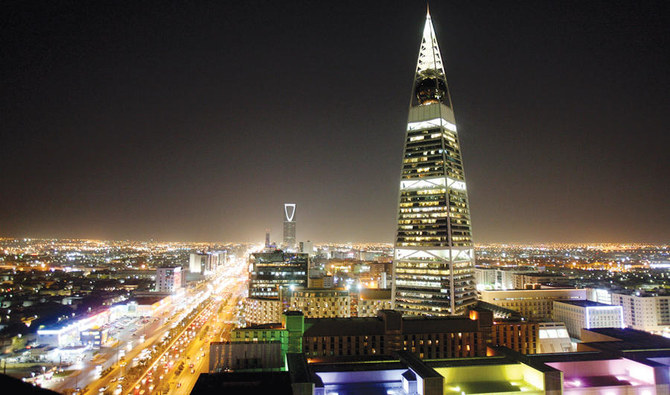
- New visa move will allow residents and expatriates to play a more active role in Saudi economy
Saudi Arabia’s King Abdulaziz Royal Reserve Development Authority begins archaeological survey
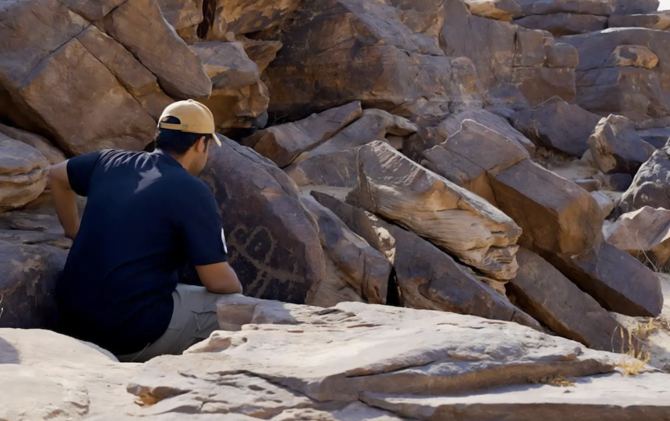
- Study will look at the reserve in depth and conduct archaeological studies to help it achieve its strategic objectives
RIYADH: Saudi Arabia’s King Abdulaziz Royal Reserve Development Authority on Thursday announced it had launched a comprehensive preliminary archaeological survey.
The study — which was announced on April 18, World Heritage Day — will look at the reserve in depth and conduct archaeological studies to help it achieve its strategic objectives, while working toward targets for the year 2030 for the Kingdom’s royal reserves.
The study is being done in partnership with King Saud University and in cooperation with the Heritage Commission. It is being led by a team of experts and specialized national competencies, the Saudi Press Agency reported.
It will be conducted using two methods: the first via satellite, and the second, based on what is known as the “comprehensive archaeological survey,” by visiting the discovered sites, while preparing a detailed report for each site visited.
The survey involves producing studies on the old environment; work on rehabilitating archaeological and historic sites; and an attempt to label suitable sites as tourist attractions. It will also include developing a plan to preserve existing and discovered sites.
The King Abdulaziz Royal Reserve is one of the seven reserves established by royal decree. It holds governmental membership in the International Union for Conservation of Nature, and is managed by an independent body headed by the Minister of Interior Prince Abdulaziz bin Saud bin Naif.
Saudi Arabia and Armenia to forge ‘road map’ for diplomatic ties, FM Ararat Mirzoyan tells Arab News
Saudi Arabia and Armenia to forge ‘road map’ for diplomatic ties, FM Ararat Mirzoyan tells Arab News
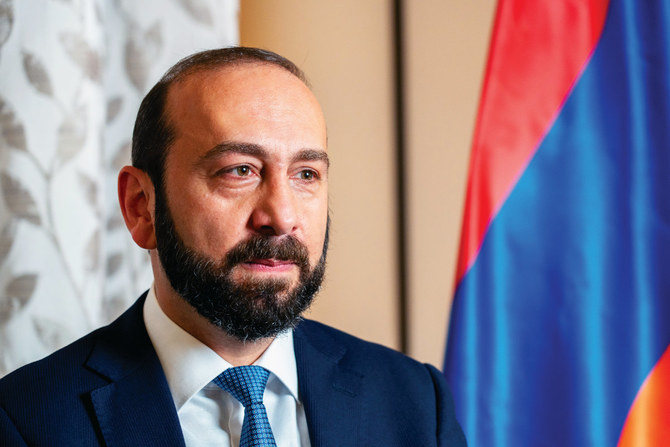
- ‘No limit’ to opportunities for Saudi-Armenian cooperation, says Foreign Minister Ararat Mirzoyan on ‘historic’ Riyadh visit
- Says Armenian government supports a ceasefire in Gaza and the two-state solution for Israel-Palestine
- Discusses ‘Crossroads of Peace’ project, which offers ‘window of opportunity’ for lasting peace in South Caucasus
RIYADH: Armenia is committed to drafting a “road map” for the development of diplomatic relations with Saudi Arabia, Ararat Mirzoyan, Armenia’s minister for foreign affairs, told Arab News on Thursday in an exclusive interview during a visit to the Kingdom.
In a wide-ranging discussion, in which he explored the development of ties, the peace process in the South Caucasus, and the war in Gaza, Mirzoyan said the establishment of official diplomatic relations in November last year was only the start.
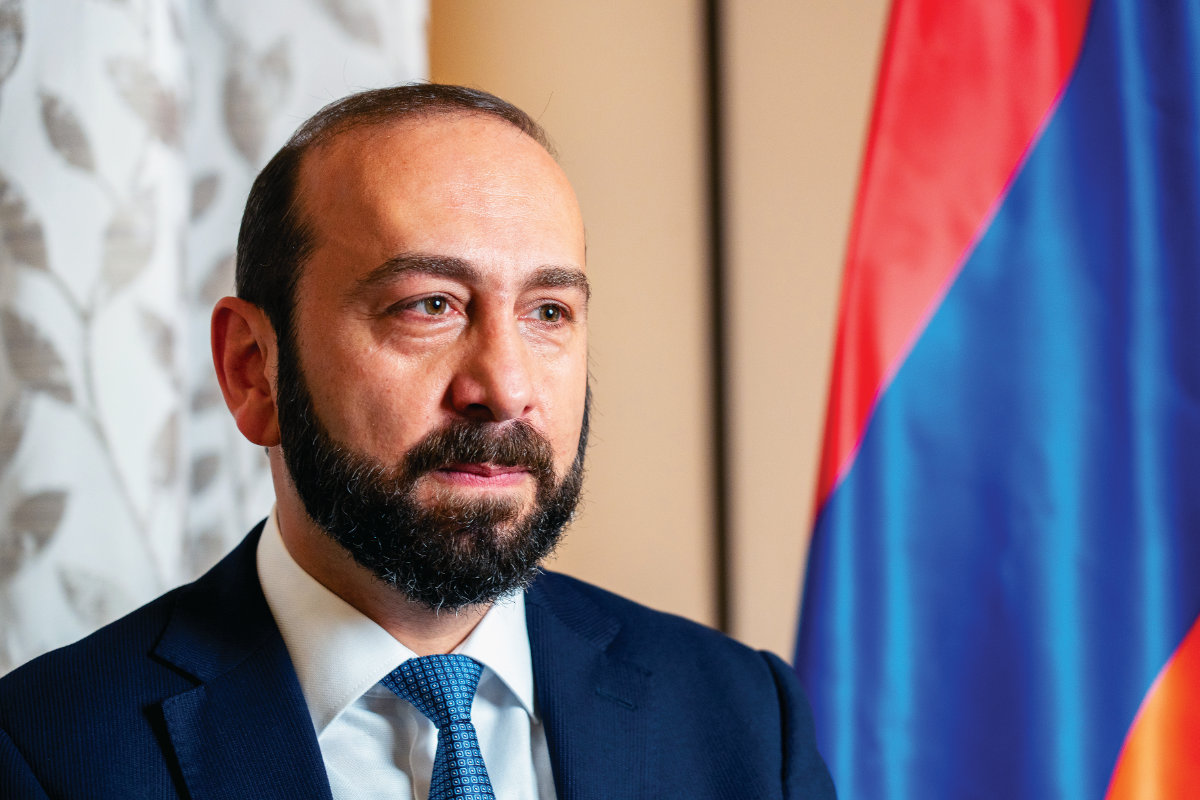
“Historically, we have enjoyed friendly relations with the Arab world, with all the Arab countries, and these relations have been based on traditionally historically friendly relations between our peoples, between Arab people and the people of Armenia,” he said.
“And we also should remember that many Arab countries became home for Armenian refugees, the survivors of the Armenian genocide. But of course, the cultural ties, the relations — they were there even before that.”
Mirzoyan met his Saudi counterpart Prince Faisal bin Farhan in Riyadh on Wednesday, and was also received at the Saudi Ministry of Education and Ministry of Economy.
“We don’t want to stop here. There are so many areas, there are so many fields where we can deepen our cooperation. And there are so many spheres where we can explore what we can do jointly. And hopefully, after this visit, the road map will emerge — a road map of development of relations,” he said.
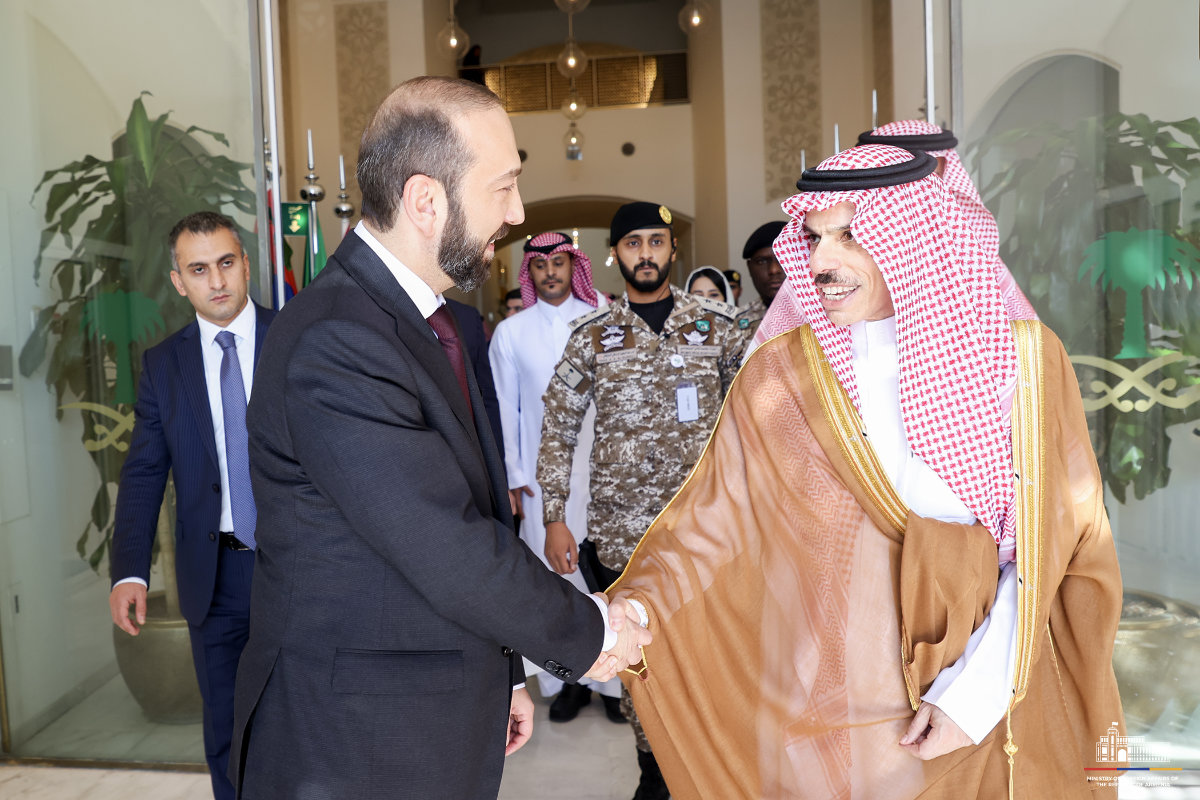
The past few years have seen gradually warming ties between the two countries. In October 2021, Armenia’s then-President Armen Sarkissian visited Saudi Arabia. This visit marked the beginning of a new diplomatic future for Armenia.
Although formal diplomatic relations are new, Mirzoyan is highly optimistic about the mutual benefits of developing ties.
“Frankly, there is no limit here,” he said. “Education, sciences, advanced technologies, urban development, agriculture, tourism, people-to-people contacts, trade, investment, and infrastructure. There are so many things going on on the ground here in Saudi Arabia, but also in Armenia.”
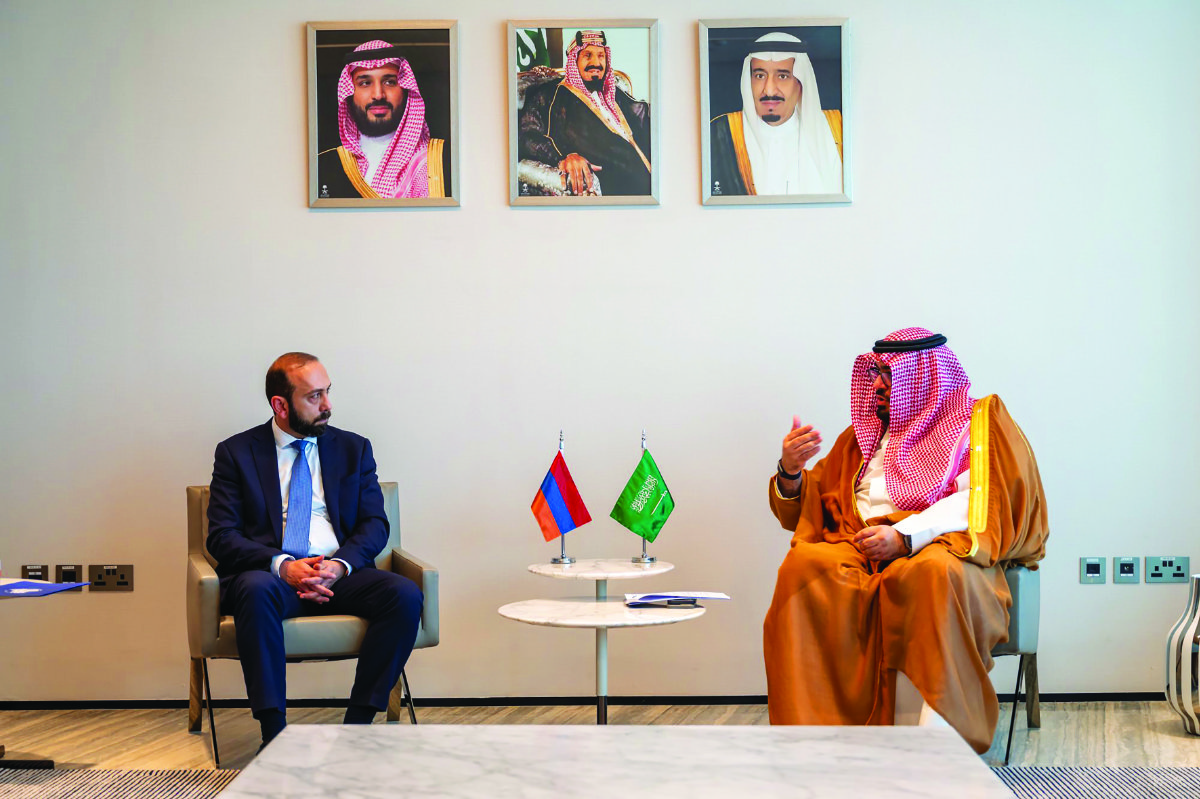
Mirzoyan praised the launch of commercial flights between Riyadh and the Armenian capital Yerevan by Saudi airline Flynas, which began in June last year, saying he expects the development to increase tourism between both nations.
The foreign minister also congratulated Saudi Arabia on winning its bid for Expo 2030 — a bid for which Armenia expressed its support in 2022.
“Our vision is that we should build a very good and close cooperation with Saudi Arabia, including when it comes to regional affairs, but also international fora,” he said.
“I see possible close cooperation on international fora as well. Again, I would like to mention that when Saudi Arabia came up with the bid for Expo 2030, Armenia was among the countries who supported this.”
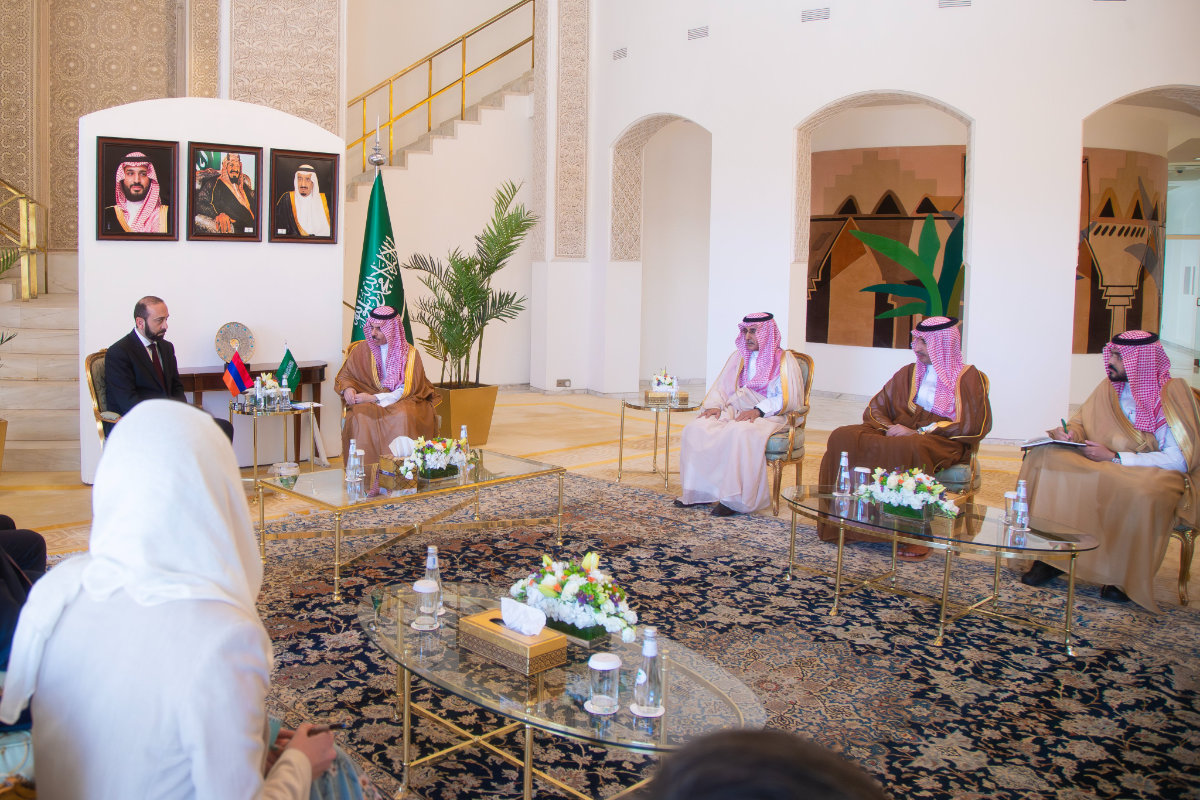
Mirzoyan also expressed his support for a two-state solution and ceasefire in Palestine. In December last year, Armenia joined Saudi Arabia and more than 150 other countries in the UN General Assembly in voting for an immediate ceasefire in Gaza. If necessary, and if asked, he said Armenia would be ready to act as a potential facilitator between the two sides.
“Armenia has always supported the two-state solution for Palestine and Israel, and Armenia is strongly against the violence and targeting civilian populations,” Mirzoyan said, adding that Armenia had very recently been on the receiving end of such violence.
“So we are really strongly against violence against civilian populations,” said Mirzoyan.
Armenia’s commitment to helping war-affected civilian populations has gone beyond mere words and condemnation. Last month it sent 30 tonnes of food and medicine to displaced Palestinian civilians sheltering in Rafah.
“Armenia regrets tens of thousands of innocent victims of the escalation of hostilities in Gaza. We ourselves have experienced the horror of attacks on civilians and civilian infrastructure, and we join calls of the international community for an immediate ceasefire in Gaza,” Armenian Prime Minister Nikol Pashinyan said at a press briefing during a visit to Egypt to discuss aid deliveries.
Mirzoyan said he hoped the aid “could help a little bit (to) ease the situation and the suffering of these people,” and that his country was prepared to act as a potential facilitator between Israel and Palestine.
Closer to home, Mirzoyan expressed his desire to see peace between Armenia and other nations in the South Caucasus, although he acknowledged that lasting peace would require efforts to overcome any obstacles.
“We truly believe that there is a window of opportunity, quite realistic momentum, to establish lasting peace and stability in the South Caucasus,” he said. “My government is committed to this peace agenda, and we are engaged in negotiations in good faith in quite a constructive manner.
“Although to tell the truth, there are still a couple of crucial issues regarding which the positions of the sides are far from each other. The first issue is, of course, the issue of the borders and mutual recognition of territorial integrity.”
The South Caucasus has been the site of frequent territorial disputes between Armenia and Azerbaijan, who have quarreled over their respective borders since the collapse of the Soviet Union in 1991.
To normalize the relationship, Mirzoyan said all parties had to respect the principles of sovereignty, jurisdiction, equality and reciprocity.
“We believe that everything can be unblocked, including the railways, and we believe that everything that is going to be unblocked should remain under the sovereignty of the respective countries,” he said.
“The infrastructure on Armenian territory should remain under Armenian sovereignty and, respectively, the Azerbaijan infrastructure under its sovereignty. And also this infrastructure should function according to our national legislations, and everything should be done in accordance with the principles of equality and reciprocity.”
Armenia can ensure the security of people and cargo passing through its territory without the need of any third country presence, he added.
Despite waves of violence and displacement up until 2023, in March this year Prime Minister Pashinyan expressed his willingness to give up Armenian-controlled territories to Azerbaijan to reach a peace agreement.
Mirzoyan explained that his country had launched an initiative to improve prospects for stability and peace by unblocking transport infrastructure across the region.
“We came up with an initiative. We gave a title to it — Crossroads of Peace — because we truly believe that if the whole transport infrastructure is unblocked in the South Caucasus, including the Armenian, Azerbaijani and Turkish roads and railways, that will be not only beneficial in terms of economy, but also it will become a significant factor of peace and stability in our region.”
Even beyond Armenia and the South Caucasus, the initiative could have global repercussions, said Mirzoyan.
“Several countries are interested in this implementation of this project of peace, the Crossroads of Peace, because the benefits are obvious and I spoke about this in terms of east-west connections, but also we should remember south-north or north-south connections. And that’s why it’s called a crossroads.”
He added: “It could be useful for connecting, for instance, the Arab world, Saudi Arabia, with the Black Sea region and beyond.”
Armenia is embarking on diplomatic ties with several nations and multilateral bodies, including the EU, as it shifts away from its historically strongest ally, Russia.
“It’s fair to note that the relations between Armenia and the Russian Federation are not at their brightest point, I would say,” said Mirzoyan. “Of course, there are complications, and we don’t … want to hide these complications.
“There are issues, there are questions within Armenian society, for instance, regarding the behavior of Russian peacekeepers in Nagorno-Karabakh, but also regarding the behavior of our Russian allies when our sovereign territories were being attacked in 2022, 2023, and before that. So indeed, there are some issues there. But we work on it.”
Armenia has had frozen relations with Russia since autumn last year.
Mirzoyan stated in an interview in March with Turkiye’s TRT World that Armenia’s application for EU candidacy was under discussion.
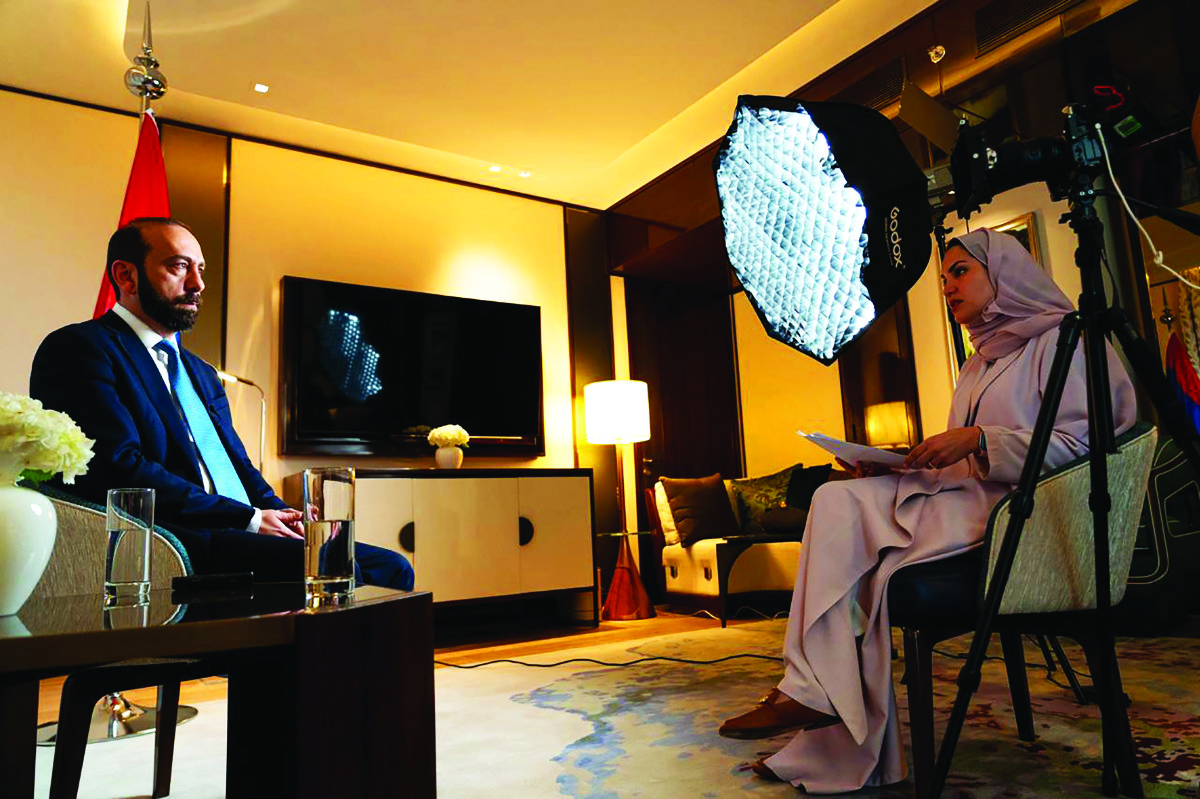
Addressing the issue with Arab News, Mirzoyan said: “The people of the Republic of Armenia do have European aspirations and it is becoming more and more strong on the background of the frustration that Armenian people had in terms of Armenian-Russian relations, but not limited to that.
“I mean, Armenia is really deepening, significantly deepening, its relations with the US, with the EU. They are our main partners in our democratic reform agenda. Now they show a strong willingness to support Armenia, to strengthen Armenia’s economic resilience.
“We are starting with the EU a new path of close partnership and, so far, none can say for sure where this path will lead the two sides.”
Saudi Arabia offers safe and serene escapes for solo female travelers
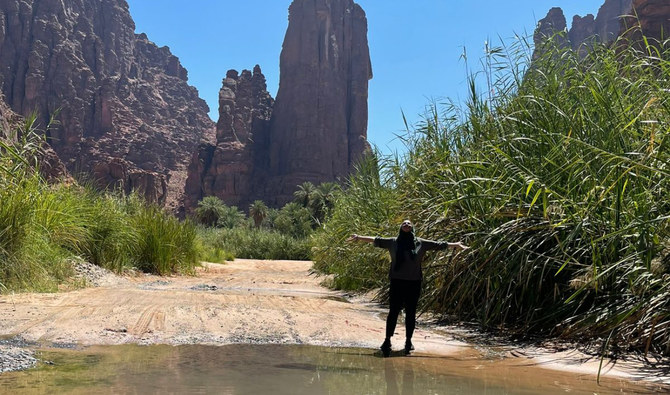
JEDDAH: Saudi Arabia is emerging as a top destination for solo female travelers seeking a vibrant cultural scene, world-class events and regions rich in heritage.
The Kingdom has been ranked the safest G20 country based on international indicators, while the city of Madinah received the highest safety rating for female solo travel worldwide by InsureMyTrip for the third year in a row.
Rafah Shawoosh, a tour guide and founding member of Tour Guides Corporative, called on solo female travelers to “explore the world with an open heart and a curious mind, embrace new experiences, and always remember to respect and appreciate the rich cultural heritage of the places you visit.”
She added: “As a passionate traveler and one of the few female tour guides, I strive to represent my country with pride and showcase the best of Saudi Arabia to visitors.”
Thorough research, forging connections and immersing oneself in local traditions are important when traveling to the Kingdom, Shawoosh said. “Remember to embrace hospitality, dress modestly when visiting mosques and enjoy the warm welcome of the Saudi people,” she added.
A key reason for women to consider Saudi Arabia as a destination is the country’s commitment to women’s safety, she said.
With its cultural emphasis on hospitality, the Kingdom is renowned for its kind and generous people who are always willing to assist tourists. A warm Saudi welcome is sure to make solo female travelers feel safe during their visit.
Saudi Arabia offers wellness holidays for solo travelers looking to relax and rejuvenate. The country boasts diverse regions that champion bespoke wellness experiences, from pristine waters in the Red Sea to lush green mountains in Asir.
“From bustling cities to serene deserts, there’s something for every traveler to discover and cherish forever,” Shawoosh said.
Luxury retreats like Habitas AlUla and Six Senses Southern Dunes offer personalized spa treatments and wellness programs.
One female traveler, Rasha, said that solo travel is an opportunity to “immerse yourself in diverse cultures, discover newfound confidence and expand your perspectives.
“Each destination in Saudi Arabia offers safety, warmth, and rich insights into traditions and culinary delights, fostering empathy and respect,” she added.
“Through sharing our experiences, we become beacons of empowerment and inspiration, shaping our own narratives and encouraging others to embrace the transformative power of travel and cultural exploration. In the exploration of the world, you may just find yourself.”
Saudi Arabia is also home to inspiring women who are driving the country’s cultural transformation. Female entrepreneurs make up 45 percent of SMEs in Saudi Arabia, and women are leading the charge in the country’s tourism and fashion sectors.
Female artists, chefs and fashion designers make the Kingdom an exciting destination for solo female travelers looking to support women-led businesses.
With seven UNESCO World Heritage Sites, a rich heritage and culture, and bustling cities like Jeddah and Riyadh, the Kingdom offers something for every traveler.
Solo women travelers can also explore ancient ruins, wander through old towns, or enjoy outdoor activities like desert safaris and hot air balloon rides.
Dina, a marketing professional from Australia, has traveled to Saudi Arabia on multiple occasions, with two of those trips taken solo. As a self-proclaimed enthusiast for adventure, she finds herself drawn back time and again to satisfy her cravings for both relaxation and excitement.
Delighting in the warmth and vibrant cultural scene, she has explored AlUla, Diriyah, Jeddah and Abha.
“It’s such a joy to be out and about in Saudi Arabia. Never have I had to think twice about my safety here and I have never felt uncomfortable,” she said.
Visiting Saudi Arabia has never been easier, with visa initiatives being rolled out to make the country more accessible. The eVisa program now includes 63 countries and special administrative regions, and UK, US and Schengen visa holders are eligible for instant eVisas.
Saudi king receives letter from Bahraini counterpart about relations between their nations

- Saudi, Bahraini officials discussed relations between their countries during meeting in Riyadh
RIYADH: Saudi Arabia’s King Salman on Thursday received a letter from King Hamad of Bahrain concerning relations between their countries.
The missive was delivered to the king by Abdulrahman Al-Rassi, the deputy minister for international multilateral affairs at the Saudi Foreign Ministry and general supervisor of its Public Diplomacy Agency, who was acting on behalf of Foreign Minister Prince Faisal bin Farhan.
The letter from King Hamad had been presented to Al-Rassi by Bahrain’s ambassador to the Kingdom, Sheikh Ali bin Abdulrahman Al-Khalifa, during a reception at the ministry’s offices in Riyadh.
During their meeting, the minister and the envoy also discussed relations between their countries, ways in which they might be developed in all fields, and other topics of mutual interest.
Saudi Arabia jails expat for five years for harassing a woman
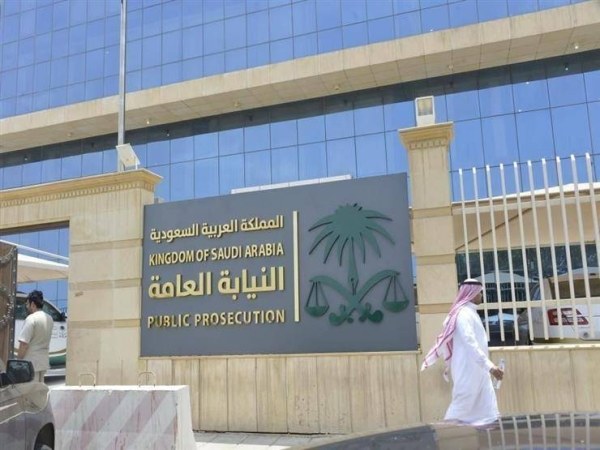
RIYADH: An expatriate living in Saudi Arabia has been sentenced to five years in prison for harassing a woman.
Saudi Arabia’s Public Prosecution’s Morality wing completed its investigations into the issue, the Saudi Press Agency reported on Thursday, and after being referred to the relevant court, tried and found guilty, he was jailed and also fined SR150,000 ($39,986).
The Public Prosecution affirmed its keenness and determination to protect public morals, adding that any violation of this requires criminal accountability.




